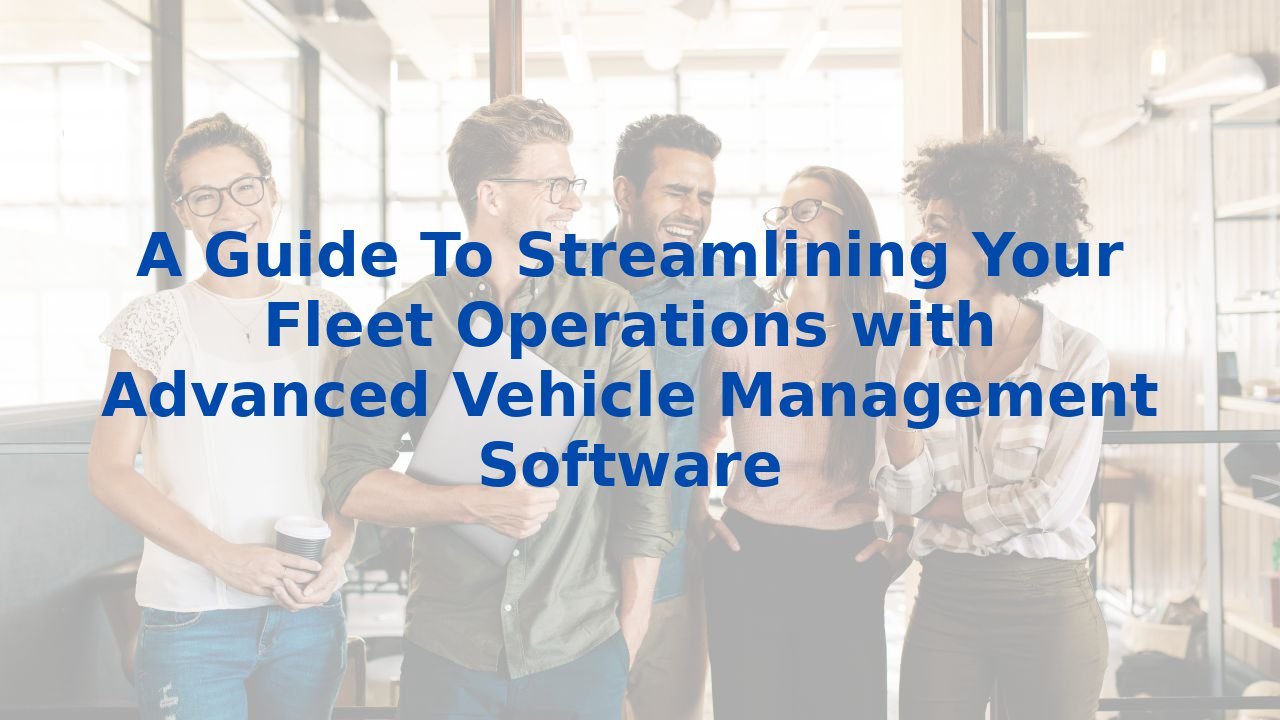A Guide To Streamlining Your Fleet Operations with Advanced Vehicle Management Software
A Guide To Streamlining Your Fleet Operations with Advanced Vehicle Management Software
In the current landscape of logistics, the quest for efficiency is relentless. If you're looking for ways to enhance your fleet operations, advanced vehicle management software offers transformative capabilities that can reshape how you manage your logistics. Notably, integrating artificial intelligence (AI) into these systems can elevate your operations, reduce costs, and position your organization ahead of the competition. Let’s dive into the core processes and benefits of utilizing AI for your fleet management.
1. Optimizing Routes and Reducing Fuel Consumption
Imagine a system that can analyze real-time data and suggest the most efficient routes for your fleet. AI-powered tools can do just that, minimizing unnecessary mileage and slashing fuel expenses. By leveraging GPS tracking combined with real-time data, these systems can optimize routes, ensuring your vehicles traverse the most efficient paths. The reduction in fuel consumption not only leads to significant cost savings but also advances your sustainability goals. As the logistics sector increasingly embraces eco-friendliness, this kind of optimization can be a game-changer.
2. Enhancing Remote Management and Productivity
The modern workforce thrives on flexibility, and advanced fleet management systems enable managers to monitor driver performance and fleet status from anywhere. Remote oversight enhances productivity, allowing managers to focus on strategic initiatives rather than day-to-day troubleshooting. With AI integration, performance data becomes accessible, supporting informed adjustments when necessary. This kind of adaptability transforms management from reactive to proactive, fostering a culture of continuous improvement.
3. Improving Safety and Driver Behavior
Safety is paramount in fleet operations, and AI-driven monitoring systems play a crucial role in promoting safer driving practices. These systems can detect unsafe behaviors, such as excessive idling or reckless driving, and provide actionable insights for improvement. By fostering constructive dialogues with drivers using this data, you create an environment that prioritizes safety. This proactive approach not only reduces the risk of accidents but also enhances the overall safety of both drivers and vehicles.
4. Boosting Customer Service and Satisfaction
Customer experience can make or break a logistics company. With real-time data at their fingertips, fleet managers can provide clients with accurate arrival times and timely updates. This transparency fosters trust and builds relationships, as customers appreciate real-time insights into their deliveries. In a competitive marketplace, improved communication can lead to heightened customer satisfaction and brand loyalty.
5. Maximizing Asset Utilization and Vehicle Lifespan
AI’s analytical prowess enables organizations to identify underutilized assets effectively. Through optimized routes and improved driving practices, vehicles can achieve peak performance and longevity. Additionally, AI systems facilitate scheduled preventative maintenance, monitoring vehicle conditions continuously. This proactive maintenance reduces breakdowns and extends the operational life of your fleet, translating to substantial cost savings over time.
6. Ensuring Regulatory Compliance
In a landscape fraught with compliance challenges, fleet management systems ensure regulatory adherence by consistently tracking assets and monitoring legal requirements. This level of oversight protects companies from potential violations and penalties, bolstering their reputation and standing in the industry. A fleet operating with integrity not only boosts operational efficiency but also engenders trust among clients and stakeholders alike.
7. Facilitating Data-Driven Decision Making
One of the strongest advantages of AI is its ability to generate reliable, actionable data. Accurate data entries eliminate inconsistencies associated with manual recording, allowing fleet managers to make swift, informed decisions. Leveraging real-time analytics empowers leaders to continuously enhance operational efficiency. Data becomes not just a collection of numbers, but a strategic guide that drives growth and innovation.
The Benefits of Training Your Employees for AI
While adopting AI systems can yield tremendous benefits, the human element remains integral to success. Training your employees on these advanced systems can unlock their full potential. Here’s how:
- Enhanced Efficiency: Equipping your team with AI tools fosters understanding of data analytics and predictive maintenance, streamlining operations.
- Improved Decision Making: Employees capable of interpreting AI-generated data contribute to better fleet management and strategic choices.
- Adaptability: A well-trained workforce evolves with new technologies, maintaining competitiveness in a rapidly changing industry.
- Reduced Errors: Comprehensive training minimizes inaccuracies in data entry, ensuring decisions are based on reliable information.
Conclusion
Implementing AI-powered fleet management systems is not just a strategy; it's an evolution that can redefine your operations. By embracing features like GPS tracking, real-time analytics, and predictive maintenance, your fleet operations can experience a significant transformation. Coupled with employee training, your organization can fully leverage these advancements, crafting a fleet that operates efficiently, safely, and profitably.
The future of logistics is here, underscored by the promise of artificial intelligence. Embrace the journey towards advanced fleet operations, and position your business for success in the digital age.



